Trusted Professional Hearing Care in the Comfort of Your Residence
Philip Audiology and Mobile Hearing Aid Services
Philip Audiology & Hearing Aid Services is a mobile practice that provides adult clients with a variety of hearing care services from the comfort of their own residence, serving Greater Long Island, Queens, Eastern Brooklyn, and Manhattan.
Proud To Be A Veteran-owned Local Business


Call Us
Call or Text

Book Appointment

Improve Your Hearing Today
HAVE YOU NOTICED DIFFICULTY HEARING IN GROUP SITUATIONS OR BEING ABLE TO HEAR BUT NOT ABLE TO UNDERSTAND SPEECH? Are you having to turn up the volume on your TV, and your significant other thinks it’s too loud?? For many with hearing loss, these kinds of complaints can continue for many years before finally acknowledging they have a problem— wherever you are in your stage in life. Philip Audiology & Hearing Aid Services is here to help you hear your best and experience a better quality of life!
For many people with hearing loss, a trip to a medical office can be difficult due to unforeseen challenges like transportation or health issues, and it can take up most of their day. That’s where our services come in!! We are a mobile company that provides audiology services in the comfort of your home, based on your availability!
We come to you! We provide adult clients with various hearing care services serving greater Long Island, Eastern Brooklyn, Queens, and Manhattan.
A Different Kind of Audiologist
Hello, my name is Dr. Tony Philip and I’m an audiologist passionate on making a difference.
I’m blessed to be able to be able to help those with hearing difficulties as well as educate others on the importance of healthy hearing. If you ever have any concerns or questions about your hearing, I am always happy to help.
I have extensive clinical experience as well as a husband, a father of 3 girls, and a former Army Reservist officer. I strive to earn your trust!
Mission Statement
Philip Audiology & Hearing Aid Services is a mobile audiology practice specializing in traveling to the patient for comprehensive and professional audiology services. We strive to improve the communication and quality of life for the hearing impaired by listening to our patient’s concerns, providing accurate diagnoses of their hearing loss, and empowering them with a wide range of custom-tailored solutions to meet their needs a cost-efficient manner. It is our commitment to always to keep the patient “first” and to earn their trust by seeking transparency in all our dealings.
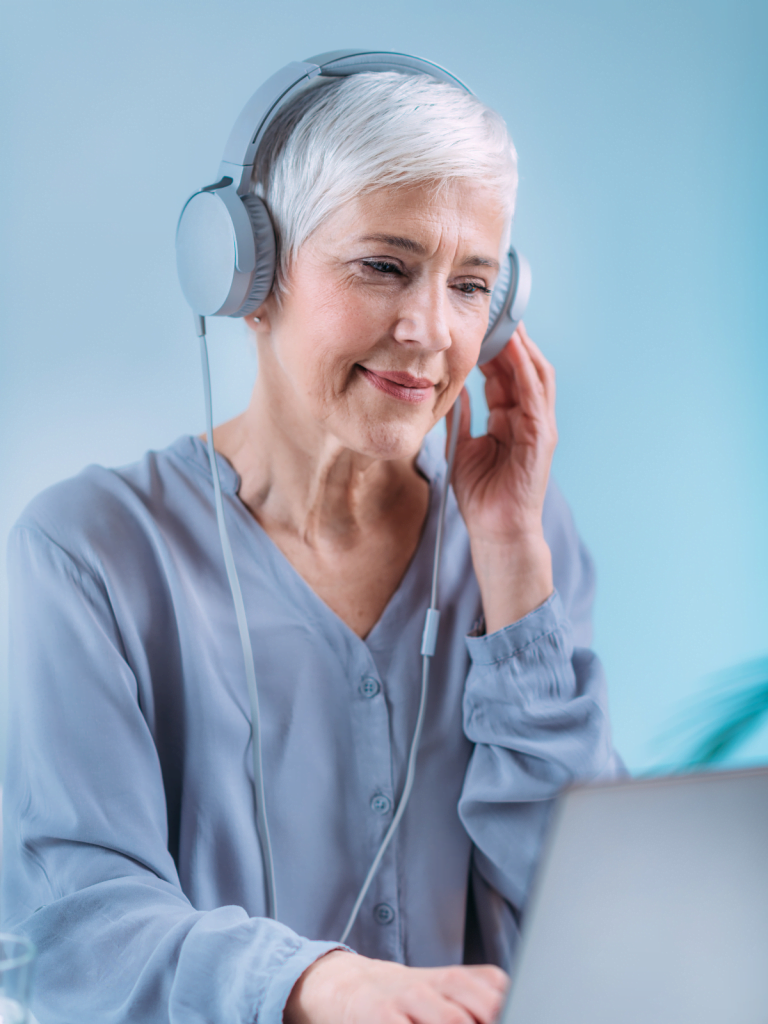
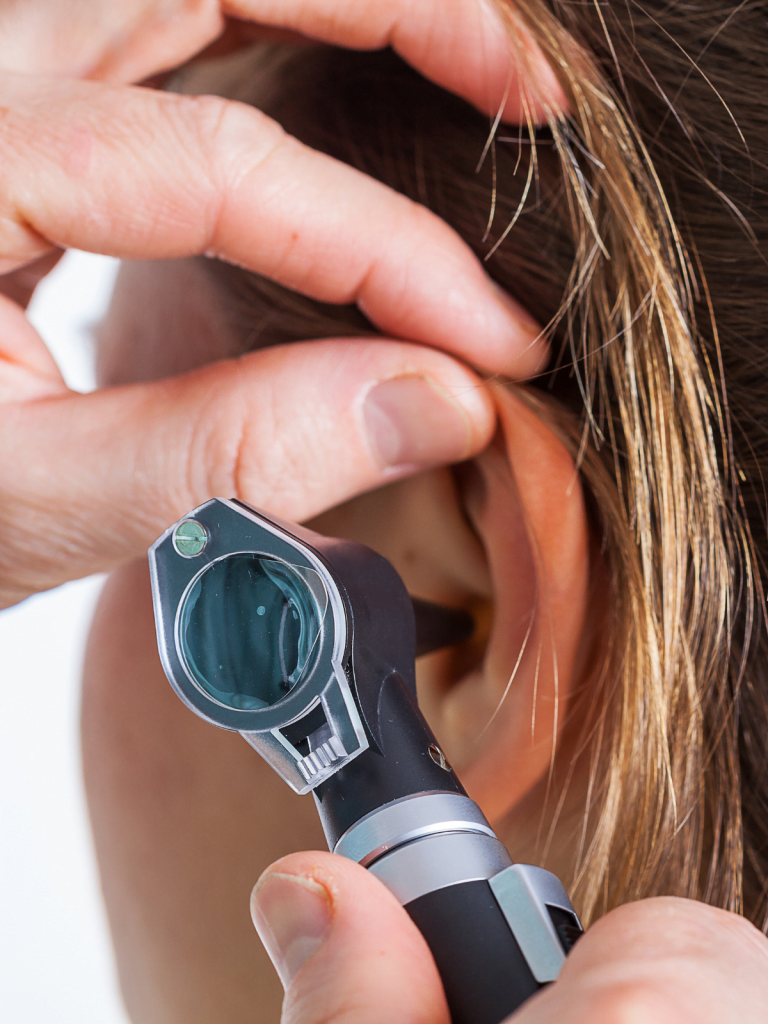
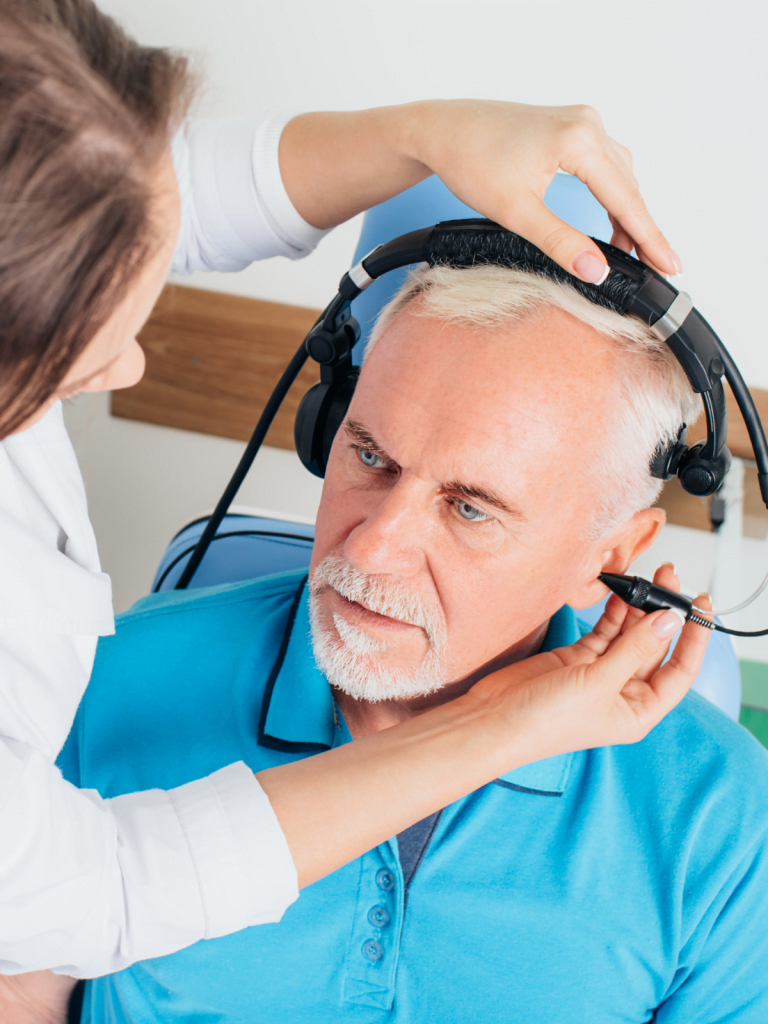
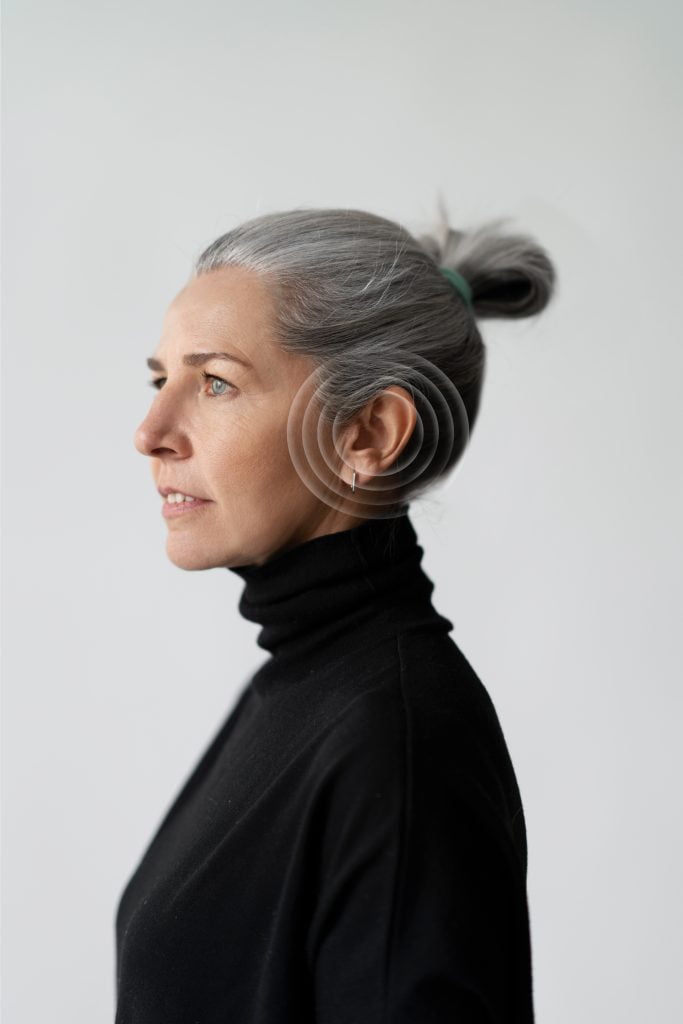
Meet Dr. Philip
Dr. Philip is committed to earning your trust through his care. He will listen to all of your hearing care concerns first and then provide a wide range of custom-tailored solutions to meet with patient’s needs.
To us you are not a number but the reason that we started this service. For years Dr. Philip was frustrated to see patients who had come from other places and were not provided the appropriate care that they needed. Rest assured with Dr. Philip you are not buying a product, you are buying a service and building a lasting relationship.
Our Services
We are dedicated to providing a full range of audiological care in the comfort and convenience of your home or office. Our goal is to provide mobile audiology services by combining clinical excellence and convenience with personal attention and high-level service.

Book Appointment

Service Area
Frequently Asked Questions
What are the early signs of a hearing loss?
Hearing loss often occurs so gradually that the individual may not be aware of a problem. In fact, it is not uncommon for a hearing loss to be first detected by a family member, who is having to speak louder or repeat themselves. Early signs of hearing loss include:
- Turning the TV or radio volume louder than other family members prefer.
- Difficulty understanding speech in a background of noise, for instance in restaurants.
- More difficulty hearing children and women than men.
- Feeling tired after conversations
- Difficulty hearing in meetings.
- Difficulty hearing at public speaking events.
- Ringing in the ear(s) when no external sound is present.
- Having things repeated frequently.
- Difficulty hearing people “with low voices.”
When should you get your hearing checked?
You should see an audiologist for an exam if you’re struggling to hear, if someone else has noticed a change in your hearing, ear drainage or pain or genetic pattern of hearing loss. Age recommendations usually start at 65 years or older for testing, and people who are exposed to loud noises in their environment (occupational or recreational).
Is the hearing evaluation painful?
How Do I Know If I Need A Hearing Aid(s)?
- Hearing Evaluation
The results of the evaluation are important to determining the need for hearing aid(s), the type of hearing aid(s) and whether one or two aids are needed by the audiologist - Personal Preference and Physical Health
The evaluation provides essential information but the audiologist also considers and weighs patient’s personal preferences as well as their overall health. Patients may not be ready to try hearing aids initially, but they will be asked to practically assess their degree of communicative difficulty. Overall patient success is critical in that the patient must acknowledge their loss and be motivated to try hearing aid amplification
What does an audiologist do?
Audiologists are healthcare professionals that provide care for issues stemming from the auditory and vestibular areas of the ear, such as hearing and balance disorders. Most frequently, they diagnose hearing impairments and provide treatment for them. They do not perform surgery or prescribe medication.
Is an audiologist a doctor?
Audiologists are healthcare professionals who have earned at least a master’s degree but the current criteria for entry into the profession is a doctorate of audiology degree (Au.D.). Audiologists attend their own specialty school which is not a medical school and are not physicians.
What is the difference between an ear doctor (ENT) and an audiologist?
An ENT, otologist or otolaryngologist, is a doctor that treats issues related to the ears, nose and throat. They are medical physicians that attend medical school and specialize in diseases, tumors, nerve issues and other abnormalities in these areas of the body related to ear, nose, and threat
An audiologist is a hearing healthcare professional that specializes in various areas of hearing including tinnitus, hearing conservation, auditory processing, and balance disorders among others. They specialize in the technology used to manage conditions like hearing loss.
What can an audiologist diagnose?
Audiologists work with patients of all ages and can diagnose:
- Hearing loss: Can be caused by related to the inner ear, a ruptured eardrum, a buildup of earwax, ear infections or abnormal bone growth.
- Auditory processing disorders: These disorders cause the brain to struggle to understand and process sound, as well as differentiate speech and non-speech.
- Tinnitus: This condition is marked by a ringing or whooshing sound in the ears.
- Balance disorders: These conditions make you feel dizzy or unsteady on your feet. You may also feel vertigo or the sensation that the room is spinning around you.
What level of hearing loss requires a hearing aid?
Hearing aids are beneficial even for people with mild hearing loss. Treating hearing loss while it is still mild will allow you to remain engaged with your surroundings and connected with loved ones.
What Can I Expect As I Adjust To My New Hearing Aids?
Once the hearing aids are properly adjusted it will allow you to hear sounds that previously may not have been audible. One of the first things you will notice is that your own voice is louder. Your brain and ears have not been heard for a long time. Sounds like wrinkling newspaper, water running, footsteps may be annoying at first. However, after about 2-3 weeks, you will notice an adjustment to these environmental sounds. Gradually wearing the hearing aids more often and following the schedule provided by your audiologist will result in greater success to the transition of amplified sound. During the initial trial period, you may need to schedule multiple visits so that the audiologist can monitor your progress and adjust the controls of your hearing aid(s), if needed.
Hearing aids didn't work for a friend of mine, will they not work for me?
Each patient is individual and their adjusting to hearing aids can take up to many months. Realistic expectations regarding your hearing aids are very important to your success. Wearing your hearing aids on a regular basis is important to allow your brain to adapt faster to the “new” world of sound and improve your ability to focus on speech. Keep in mind that you will be hearing sounds that you haven’t heard for years. A positive attitude and motivation are the key to successful hearing aid fitting.
Are hearing aids big and bulky? I still do care about my appearance and hate to think the first thing people will notice about me are my hearing aids!
Just like computers which once took up entire rooms with their bulky hardware have shrunk to the size of a thin spiral notebook, the same technology has allowed for hearing aids to shrink as well, while offering never before heard clarity. A wide selection of hearing aids with various assortments, including tiny behind the ear (RIC/BTE), in the ear (ITE), in the canal (ITC) and invisible the canal (IIC/CIC) which are perfect for those who demand subtlety.
What Devices, Other Than Hearing Aids, Are Available To Help Me?
- Various products referred to as assistive listening devices (ALDs), are available to help people hear better in specific situations. For example, assistive listening devices are available to improve hearing while watching television or for group-listening situations such as movies, lectures or religious services. Specific devices are also available for individuals who have difficulty hearing the doorbell, car signal, or emergency alarms. Telephone amplifiers are available for individuals who are experiencing difficulty understanding speech while using the telephone.
- Speak with your audiologist concerning other ALDs that may be beneficial for your specific situation.
What is an over-the-counter (OTC) hearing aid?
OTC hearing aids are medical devices designed to treat mild to moderate hearing loss in those 18 years or older. Like prescription hearing aids, they are regulated by the FDA, but they each have varying guidelines for safety and efficacy. OTC hearing aids are different from personal sound amplification products (PSAPs), which are not regulated by the FDA.
What is the difference between a hearing aid and an OTC hearing aid?
Unlike prescription hearing aids, OTC hearing aids are only meant for adults with mild or moderate hearing loss. They do not require an exam or fitting from an audiologist. Prescription Hearing aids are set based on results of the audiology evaluation—they are frequency specific, have noise reduction capabilities to help attenuate background noise to a degree (no hearing aid on the market will turn down 100% of background noise) and are able to pair the aids with your cell phone (if compatible) as well as various assistive devices including remote microphones.
What kinds of hearing loss is an OTC hearing aid designed for?
OTC hearing aids are designed for adults over 18 years old and experiencing mild or moderate hearing loss. They are not meant to be used by those younger than 18 or adults with severe hearing loss.
Can I get a hearing aid without an audiologist?
Prescription hearing aids, which are customized for your needs and appropriate for all levels of hearing loss, are only available after receiving a hearing exam from an audiologist. Over-the-counter hearing aids have been approved by the FDA for certain cases of mild to moderate hearing loss and are available without a hearing exam at retail venues including your local pharmacy
What causes tinnitus?
There is no definitive cause as to why it happens but there are many health conditions that can lead to tinnitus, and often, an exact cause is never found. Common causes of tinnitus include:
- Hearing loss, because the hair cells in the ear that pass sound to the brain can leak electrical impulses to the brain when they are broken
- Ear infections or ear canal blockage, which change the pressure within the ear
- Head or neck injuries, which can impact the inner ear, hearing nerves or brain function related to hearing
Other factors include Meniere’s disease, problems with the Eustachian tubes, tumors in the head and neck, temporomandibular joint (TMJ) disorders and certain medications.
What Is Noise Induced Hearing Loss?
There is no definitive cause as to why it happens but there are many health conditions that can lead to tinnitus, and often, an exact cause is never found. Common causes of tinnitus include:
- Hearing loss, because the hair cells in the ear that pass sound to the brain can leak electrical impulses to the brain when they are broken
- Ear infections or ear canal blockage, which change the pressure within the ear
- Head or neck injuries, which can impact the inner ear, hearing nerves or brain function related to hearing
Other factors include Meniere’s disease, problems with the Eustachian tubes, tumors in the head and neck, temporomandibular joint (TMJ) disorders and certain medications.
Why do I need hearing conservation or hearing protection?
Noise is one of the most prevalent problems in today’s occupational environment, causing gradual hearing loss in workers in a wide variety of occupations. The extent of damage from noise depends on the intensity of the noise, measured in decibels (dB), and the duration of exposure. painful, and most people will avoid these.
How do I know whether I am required to enroll in the hearing conservation program?
Workers who are exposed to a time-weighted average of 85 decibels (A-scale) or more for an eight-hour exposure are considered to have occupational noise exposure and are required to enroll in the hearing conservation program
Our Testimonials
What our clients say about our Services
Dr. Philip’s examination was very professional and his closing consultation was complete.
I never had such a thourough exam. I was very deaf and subject to harm, however, I now have a wonderful hearing experience.
I personally want to thank Dr. Tony Philip for his professionalism and instruction on use, care, programming, and explanation of my hearing aids
Willis O.“I was with Dr. Philip to receive a set of hearing aids. I just wanted to inform you that Dr. Philip was very kind and very professional in his treatment to me. I had a previous appointment a few months before this for tests and he did a great job with the tests and the questions he asked me. He didn’t just hurry me through things he took his time and seemed very concerned about my situation.”
Raymond M.Words cannot express my appreciation to you for allowing me to again hear the many sounds that I have been missing for many years. Your kind, gentle, and involved demeanor made my experience both pleasant and memorable.
Rick G.I was very impressed when he examined my husband for hearing loss. He is very professional and kind. He explained my husband’s deteriorating loss of hearing to me in layman’s language using a chart. He made it very clear the extent of my husband’s disability and how he was going to make his hearing a little better with the technology available. He gave me a few hints on how to talk to my husband so he would understand me and also advised me on the extent of his hearing loss. We are always quick to criticize but not to compliment. Thank you for your professionalism and concern
Anne H.
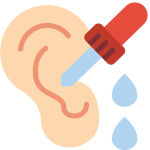
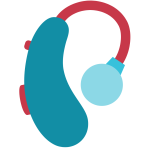

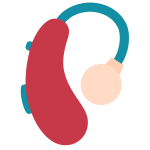

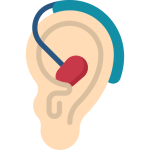

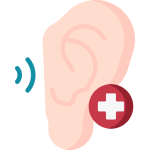
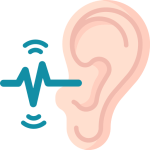
Recently I had an appointment with Dr. Philip for new hearing aids. My experience with Dr. Philip has been noteworthy. He is extremely kind, thoughtful, helpful, and informative in every way.
Donald O.It’s hard to describe in words how much the new hearing aids and blue tooth pendant have improved the quality of my life.
My thanks again to Dr. Philip